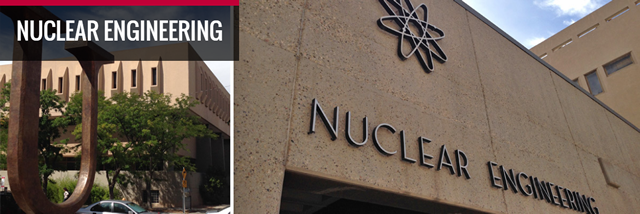
Nuclear Engineering ETDs
Publication Date
Fall 11-15-2016
Abstract
As experiment complexity in fields such as nuclear engineering continually increases, so does the demand for robust computational methods to simulate them. In many simulations, input design parameters and intrinsic experiment properties are sources of uncertainty. Often small perturbations in uncertain parameters have significant impact on the experiment outcome. For instance, in nuclear fuel performance, small changes in fuel thermal conductivity can greatly affect maximum stress on the surrounding cladding. The difficulty quantifying input uncertainty impact in such systems has grown with the complexity of numerical models. Traditionally, uncertainty quantification has been approached using random sampling methods like Monte Carlo. For some models, the input parametric space and corresponding response output space is sufficiently explored with few low-cost calculations. For other models, it is computationally costly to obtain good understanding of the output space.
To combat the expense of random sampling, this research explores the possibilities of using advanced methods in Stochastic Collocation for generalized Polynomial Chaos (SCgPC) as an alternative to traditional uncertainty quantification techniques such as Monte Carlo (MC) and Latin Hypercube Sampling (LHS) methods for applications in nuclear engineering. We consider traditional SCgPC construction strategies as well as truncated polynomial spaces using Total Degree and Hyperbolic Cross constructions. We also consider applying anisotropy (unequal treatment of different dimensions) to the polynomial space, and offer methods whereby optimal levels of anisotropy can be approximated. We contribute development to existing adaptive polynomial construction strategies. Finally, we consider High-Dimensional Model Reduction (HDMR) expansions, using SCgPC representations for the subspace terms, and contribute new adaptive methods to construct them. We apply these methods on a series of models of increasing complexity. We use analytic models of various levels of complexity, then demonstrate performance on two engineering-scale problems: a single-physics nuclear reactor neutronics problem, and a multiphysics fuel cell problem coupling fuels performance and neutronics. Lastly, we demonstrate sensitivity analysis for a time-dependent fuels performance problem. We demonstrate the application of all the algorithms in RAVEN, a production-level uncertainty quantification framework.
Keywords
uncertainty quantification, generalized polynomial chaos, high-dimensional model reduction
Sponsors
Idaho National Laboratory
Document Type
Dissertation
Language
English
Degree Name
Nuclear Engineering
Level of Degree
Doctoral
Department Name
Nuclear Engineering
First Committee Member (Chair)
Anil K. Prinja
Second Committee Member
Cassiano R. E. de Oliveira
Third Committee Member
Mohammad Motamed
Fourth Committee Member
Cristian Rabiti
Recommended Citation
Talbot, Paul W.. "Advanced Stochastic Collocation Methods for Polynomial Chaos in RAVEN." (2016). https://digitalrepository.unm.edu/ne_etds/57


